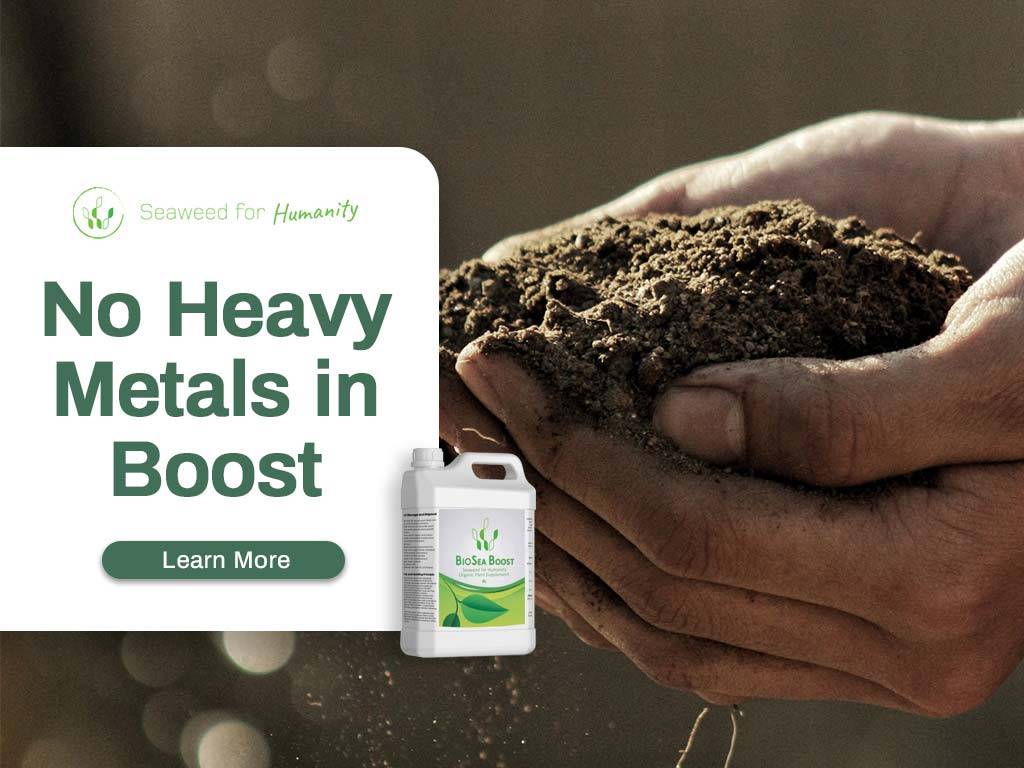Seaweeds are really good at sucking up chemicals in the water. Where we grow seaweed we test the water and the seaweed and we do not have detectable levels of lead, cadmium or mercury. We do not ship any product that has more than detectable levels. Why eat to be healthy but then ingest levels of toxic chemicals. Or use Boost fertilizer but damage your rice crop.
But in some areas and for some species they do concentrate and are used in water remediation. There is seaweed grown in the mouth of the Rhine River to extract out nitrogen, lead, cadmium to reduce the levels going into the North Sea.
Other seaweed is not harvested but washes up on the shore after storms. In contrast our seaweed is grown in the clean sea (monitored), harvested, dried and put into product.
All with the latest state of the art gate to plate tracking process and formally organically certified.
So be careful of seaweed products is grown in river mouths, or is not carefully monitored.
NB. Back in 2012 researchers found seaweed (K. alvarezii extract) exhibits potent anti-genotoxicity effects in a fish model; and thus seaweed extracts may be recommended as a supplement in fish meal and may benefit humans ingesting Hg-contaminated fish.
Inorganic fertilizers also may have issues with heavy metals, particularly cadmium. One issue frequently overlooked in the rush to embrace organic agriculture is the prevalence of excess arsenic, lead, cadmium, nickel, mercury, copper, and zinc in organic soil. Soil ecologists and environmentalists—and, to some extent, the concerned public—have known for more than a century that the synthetic pesticides of conventional farming leave heavy metals in the ground. But the fact that you’ll find the same toxins in organic soil has been something of a little secret. That is why all Biosea Boost is tested to ensure heavy metal presence is low.
References
Nagarani, Nagarajan & Janakidevi, Velmurugan & Yokeshbabu, M & Kumaraguru, Arumugam. (2012). Protective effect of Kappaphycus alvarezii (Rhodophyta) extract against DNA damage induced by mercury chloride in marine fish. Toxicological & Environmental Chemistry. 94. 10.1080/02772248.2012.707792.
Mortvedt, J.J. Heavy metal contaminants in inorganic and organic fertilizers. Fertilizer Research 43, 55–61 (1995). https://doi.org/10.1007/BF00747683

